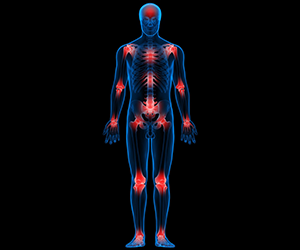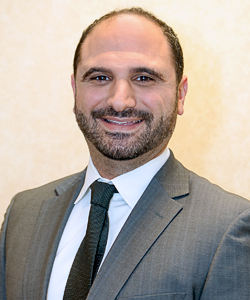Symptoms, Causes & Treatment Options for Arthritis
In the US, 54 million adults are living with doctor-diagnosed arthritis. That’s pretty staggering. In addition to the adults living with arthritis, three hundred thousand babies and children in the US are living with the condition. Young and old, around the country, people are suffering from this painful and life-changing affliction.
Arthritis is an inflammation of one or more of your body’s joints. A joint is any point in your body where two or more bones meet. The bones in your joints are protected by cartilage, a smooth tissue that cushions your bones as they move together; and synovium, a soft envelope that encases joints and releases fluid to help them move smoothly.
Arthritis is the breakdown of cartilage or synovium, leaving bones unprotected so that they grind together. This results in pain, stiffness, swelling, and difficulty moving. The cause of this cartilage and/or synovium breakdown depends on the type of arthritis with the two most common types being osteoarthritis and rheumatoid arthritis (Mayo Clinic).

Arthritis Types
Symptoms & Causes
Osteoarthritis, also called ‘wear and tear’ arthritis, is the breakdown of cartilage around your joints as a result of bones grinding together over time. This results in pain, stiffness, and inflammation. Some factors that can lead to the development of osteoarthritis are:
- Age: Over time, repetitive motion can lead to cartilage breakdown in joints. This means that older you get, the higher your risk of developing osteoarthritis.
- Family History: Genetics affect how your joints fit together, and it’s possible to inherit bones that grind and break down cartilage more quickly. Genetics can also determine how much collagen (the protein that makes up cartilage) your body produces.
- Injury: Previous injuries to bones, ligaments and joints can lead to rapid cartilage breakdown. For this reason, osteoarthritis is common in athletes and in people who put their bodies through repetitive stress. (Arthritis Foundation)
Rheumatoid arthritis is an autoimmune disease where the body’s immune system attacks synovium (joint lining), making it difficult for bones to move together smoothly. Risk factors for rheumatoid arthritis are:
- Family History: Your genes don’t directly cause rheumatoid arthritis but they can make you more susceptible to infections that trigger the disease.
- Biological Sex: Women are more likely to develop this condition than men.
- Smoking: Cigarette smoking has been shown to lead to the development of rheumatoid arthritis, as well as increased severity of the disease. (Mayo Clinic)

Common Arthritis Myths
Myth #1 - Arthritis only affects the elderly: While age is a risk factor for arthritis, the disease affects people of all ages. The association of age with arthritis has to do with wear and tear; more years of stress on joints can result in greater cartilage breakdown. However, there are many types of arthritis, and it can be caused by infection, injury, and genetic predisposition. Furthermore, age is not the only factor that puts stress on joints. Young people who are athletes, or who have medical conditions that particularly stress their joints, are susceptible to arthritis. (Arthritis Foundation)
Myth #2 - Arthritis is Untreatable: There is a common misconception that once a person is afflicted with arthritis, they are stuck with pain and stiffness for life. While it is true that there is no proven cure for arthritis, there are many treatments that greatly reduce pain and swelling, sometimes replace joints, and lead to a great quality of life. (Telegraph)
Treatment
Arthritis treatment focuses on improving joint function and managing symptoms like pain and inflammation. There are many treatment options.
- Medication: Many medications are used in the treatment of arthritis. Some medications treat pain but not inflammation, while others treat inflammation without addressing pain. Yet other medications treat both pain and inflammation; these are used to reduce symptoms in all varieties of arthritis. For rheumatoid arthritis, Biological Response Modifiers (RBMs) and Disease-Modifying Antirheumatic Drugs (DMARDs) can be used to stop the immune system from attacking the body’s joint lining.
- Therapy: Physical Therapy can be used to strengthen muscles surrounding joints, increasing your body’s range of motion. MidAmerica’s excellent physical therapists offer arthritis treatment at both our Palos Hills and Mokena offices.
Surgery:
- Joint Repair In cases where cartilage has been severely disintegrated and/or bones have been significantly damaged, your doctor may suggest surgery. Sometimes a treatment for arthritis can be joint repair, a non-invasive surgery that smoothes or realigns joints.
- Joint Fusion Another surgical option is joint fusion, commonly used in small joints (for example, in the feet or hands). In joint fusion, the ends of bones are removed and realigned so that new bones knit together. In cases where a joint is very significantly damaged, your doctor may suggest total joint replacement. This is most common in weight-bearing joints like hips and knees. This procedure involves removing a joint and replacing it with an artificial joint. (Mayo Clinic)

There is no one-size-fits-all treatment for arthritis. Your doctor will work with you to find the treatment that best fits your body and lifestyle. MidAmerica offers arthritis consultations and treatments at both our Palos Hills and Mokena locations.
Next Steps
MidAmerica’s Total Joint Clinic specializes in knee, hip and shoulder replacements, all weight-bearing joints that are commonly impacted by arthritis. Our physical therapy centers can also be helpful in treating arthritis.
For initial help in diagnosis and treatment, turn to Sarkis M. Bedikian D.O. our knee and hip replacement expert. Dr. Bedikian is a specialist in adult reconstruction, with a focus on joint health. He has extensive experience with osteopathic medicine and helping his patients meet their full potential.

To schedule an appointment with Dr. Bedikian, or for a consultation on your joint pain and what next steps to take, call MidAmerica Orthopaedics at (708) 237-7200.
MidAmerica Orthopaedics serves various areas such as Chicago, Palos Hills, Mokena, New Lenox, Oak Lawn, Burbank and more.

